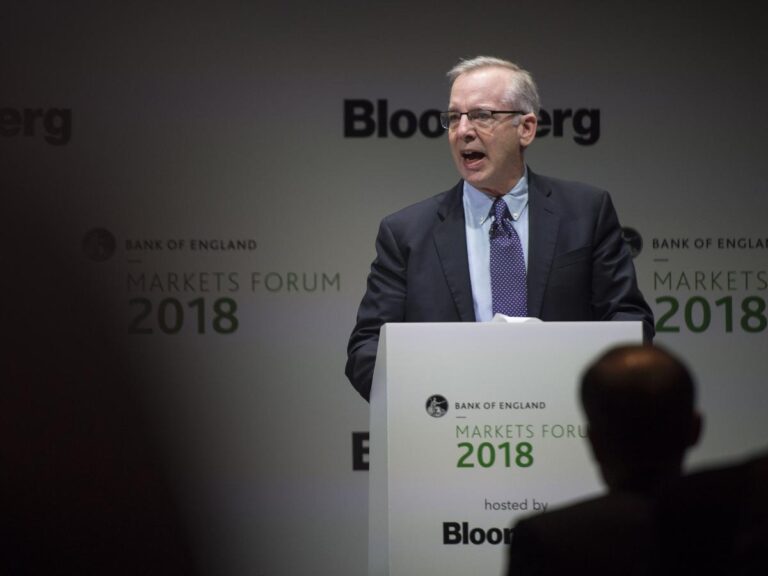
[ad_1]

-
Bond and stock markets would crash in a debt crisis, even if the US avoids immediate default.
-
That’s according to former New York Fed President Bill Dudley, writing in a Bloomberg op-ed.
-
“I have one message for those observing or involved in the standoff over raising the US federal debt limit: Be afraid, be very afraid.”
Failure to lift the debt ceiling would devastate stocks and bonds, even if the US government prioritized payments to stave off an immediate default, Bill Dudley wrote in a Bloomberg column.
The warning comes after Treasury Secretary Janet Yellen said the government could run out of money and trigger an economic crisis as soon as June 1.
“I have one message for those observing or involved in the standoff over raising the US federal debt limit: Be afraid, be very afraid,” said Dudley, who previously served as president of the New York Federal Reserve. “At this point in the financial and economic cycle, the consequences of failing to reach a deal would be particularly dire.”
This is as months-long gridlock continues to impair action to avert the crisis, given that Republicans and Democrats are becoming more entrenched in their positions, Dudley wrote. Since January, the US is relying on “extraordinary measures” by the Treasury to keep servicing debt.
While Republican House Speaker Kevin McCarthy was able to pass a House bill to lift the debt ceiling, Dudley doesn’t much sign of progress toward an agreement as it targets key Democratic initiatives, such as student loan forgiveness, while adding requirements for programs such as Medicaid.
Meanwhile, the White House has maintained that it will only agree to a “clean” deal that lifts the debt ceiling without any spending cuts or other conditions.
If lawmakers can’t agree to raise the borrowing limit, President Joe Biden likely wouldn’t pursue “gimmicks,” such as minting a $1 trillion coin, Dudley said. Instead, it’s more likely that the Treasury would prioritize payments on government debt, while federal workers would have to wait to be paid.
But that would still precipitate a market crash, he added.
“Even if prioritization averted an immediate default on Treasury securities, the damage would be vast. Markets — still dealing with the consequences of a rash of bank failures — would be shocked, having expected the usual last-minute deal,” Dudley wrote.
“Stocks and bond prices would decline violently, Treasuries would gyrate as investors worried about how long the payment prioritization would protect them, and money market mutual funds might pull out of government debt en masse.”
Already, bond traders have demonstrated worry, causing the yield on three-month Treasury bills, which would mature around when the default deadline arrives, to skyrocket to a two-decade high.
And a market crash may be necessary for the GOP to raise the debt limit without conditions, said Rep. Jim Himes, a Democratic member of the House Financial Services Committee, last month.
“Sadly, I think it’s going to take that kind of market signal to wake my ideologically frenzied friends up and just say, ‘Let’s move on and do some real stuff,'” he said.
Read the original article on Business Insider
[ad_2]